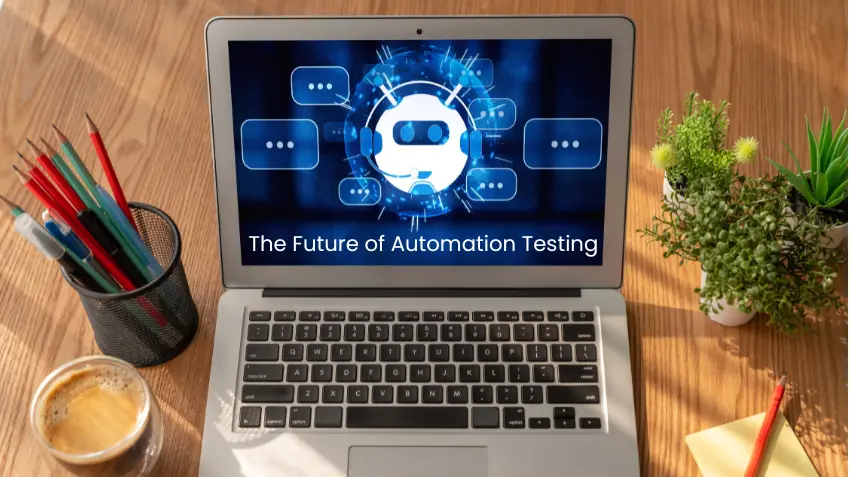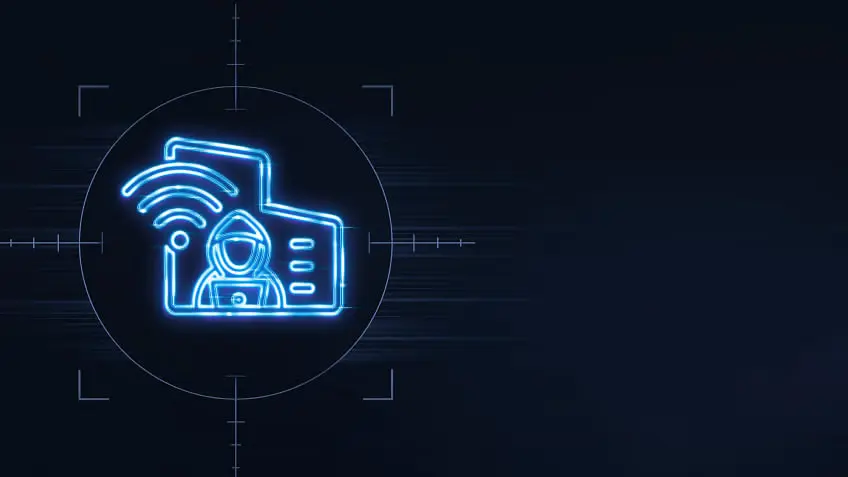- Hyper-automation is setting new industry standards, making it a crucial area for automation engineers to explore.
- Codeless testing is expanding the capabilities of automation engineers, allowing for broader participation in the testing process.
- QAOps and DevOps are redefining collaborative testing and deployment processes, which are essential for modern automation engineers.
- Testing in real-world environments provides automation engineers with insights into user experiences, enhancing the software's reliability and customer satisfaction.
As we enter 2024, automation testing is advancing significantly, driven by technological advancements and the increasing demand for quality software. For businesses aiming to stay competitive, adopting the latest automation testing trends is beneficial and necessary. Here’s a comprehensive look at the future of Automation Engineers.
Amidst this technological explosion, test automation and artificial intelligence (AI) have risen to meet the world’s growing QA demands. The test automation market, valued at $12.6 billionin 2021, is expected to grow at a CAGR of 18% through 2028, reflecting the industry's increasing reliance on automated solutions. AI in QA is also rapidly gaining traction, with the AI in testing market forecasted to grow from $170 million in 2020 to $1.2 billion by 2026, reflecting a CAGR of 39.5%. Automation has emerged as a transformative force, enabling organizations to accelerate their software development life cycles while maintaining the highest quality standards. In an increasingly competitive global market, where change is the only constant, having reliable control over internal environments is invaluable.
Introduction
1.Hyper-automation
Hyper-automation, an extension of automation, combines AI, ML, and RPA to augment human capabilities and automate complex processes. This trend is rapidly gaining traction, offering scalability and speed in product development. It enhances human productivity and ensures the quality of digital outputs across various platforms. The global market for hyper- automation is expected to grow at a CAGR of 18.9% from 2023 to 2030.
2.Codeless Testing
The rise of codeless automation tools signifies a shift towards more inclusive and efficient testing processes. These tools allow professionals without deep coding skills to contribute to automation, fostering innovation and accelerating product development cycles. The demand for codeless testing solutions is expected to increase by 15.5% annually through 2031.
3.Shift Left Testing
Shift-left testing integrates testing earlier in the software development lifecycle, promoting early detection of defects and enhancing the efficiency of the development process. This approach is becoming a staple in automation strategies, reducing costs and improving software quality from the initial stages of development. Reports suggest that shift-left testing can reduce defect detection times by up to 22%.
4.Mobile and Cross-Browser Testing
With the proliferation of mobile devices, there’s a growing need for robust mobile app testing. Real device and cross-browser testing ensures that applications perform optimally across all platforms and devices, addressing customer needs for seamless and functional software. The mobile application testing services market is projected to reach USD 13.6 billion by 2026, growing at a CAGR of 20.3%.
5.AI and ML in Testing
Artificial intelligence and machine learning are revolutionizing automation testing by enabling self-healing capabilities and predictive analytics. These technologies help optimize test processes and improve test results' accuracy and efficiency. AI in testing is anticipated to reduce testing times by up to 40%, enhancing productivity across sectors.
6.QAOps and DevOps
Integrating QA into the CI/CD pipeline through QAOps and DevOps ensures continuous testing and quality assurance throughout the software development cycle. This collaborative approach between development, operations, and quality assurance teams enhances the speed and quality of software deployments. Companies implementing DevOps have reported a 30% improvement in deployment speeds.
7.Testing in Production Environments
Emerging practices involve testing in live production environments to mimic actual user conditions more closely. This method allows for real-time data analysis and quicker adjustments, aligning testing practices with real-world usage and enhancing customer satisfaction. The use of production testing has increased by over 25% in the past year as companies seek more accurate and timely feedback.
Career Opportunities and Skill Development
Staying updated with these trends is crucial for aspiring automation engineers. Skills in AI and ML and familiarity with advanced automation tools like Selenium, TestComplete, and IBM Rational Functional Tester will be highly valued. Furthermore, understanding methodologies like QAOps and DevTestOps will be essential for those looking to excel in this rapidly evolving field.
Fortray's Commitment
At Fortray, we are keenly aware of these trends and continuously adapt our training programs to equip professionals with the skills needed to thrive in automation testing. Our courses are designed to provide hands-on experience with the latest tools and methodologies, preparing you for a successful career in this dynamic field.
For more information on how Fortray can help you advance your career in automation testing, visit our website and explore our range of courses tailored for future-ready professionals. Stay ahead in your career by accepting these changes and preparing yourself with the necessary skills to steer the future of automation testing effectively.
FAQ
Automation engineering has the potential to be a good career choice for someone with technical skills and desire to work in a technological field.
Programming remains a foundational skill for automation engineers, and proficiency in languages such as Python, C++, and Java is essential in 2024. The role demands the ability to write, test, and debug code that controls and monitors automated processes.
Automation engineers are in high demand as mechanical and digital systems become increasingly automated.








